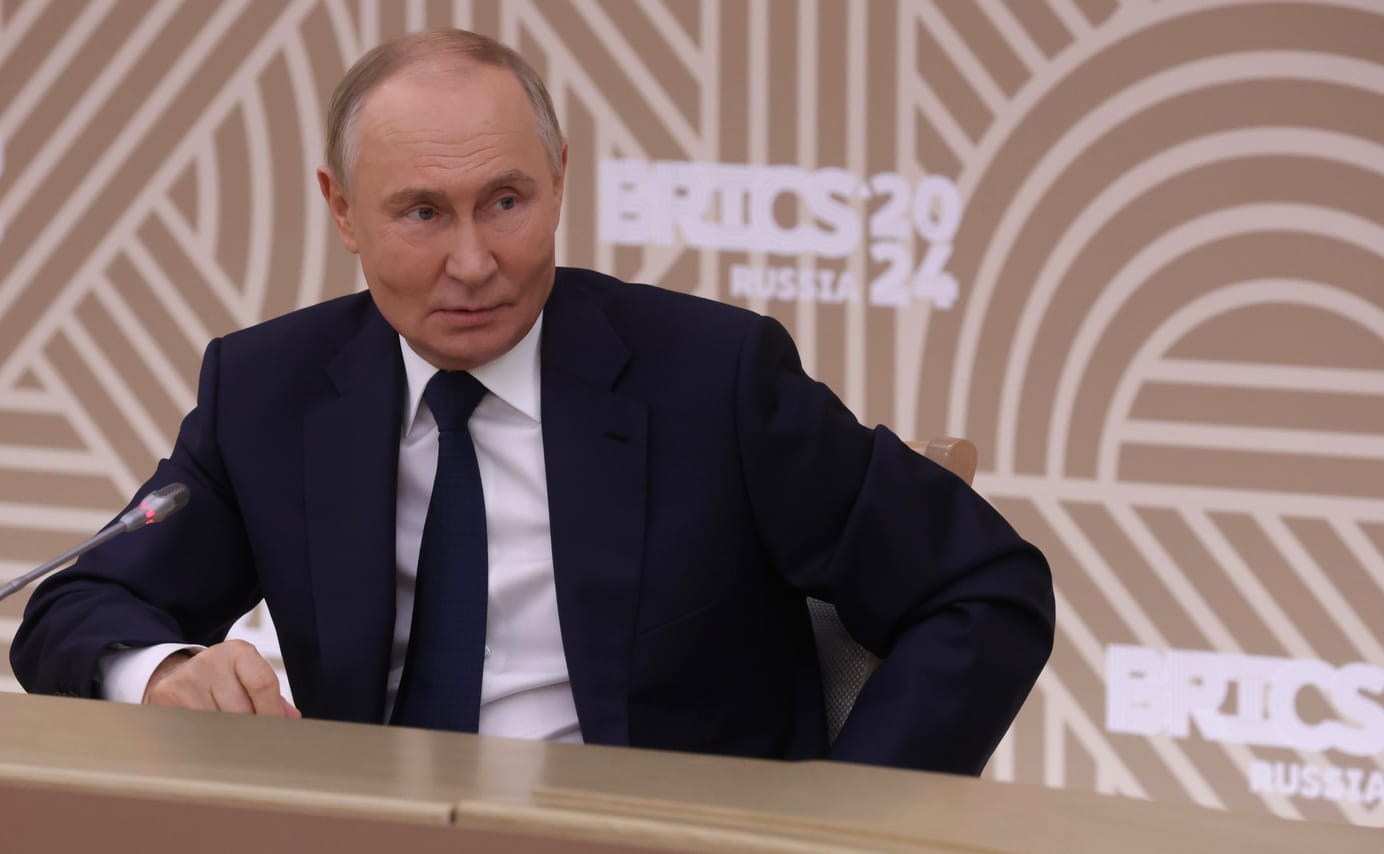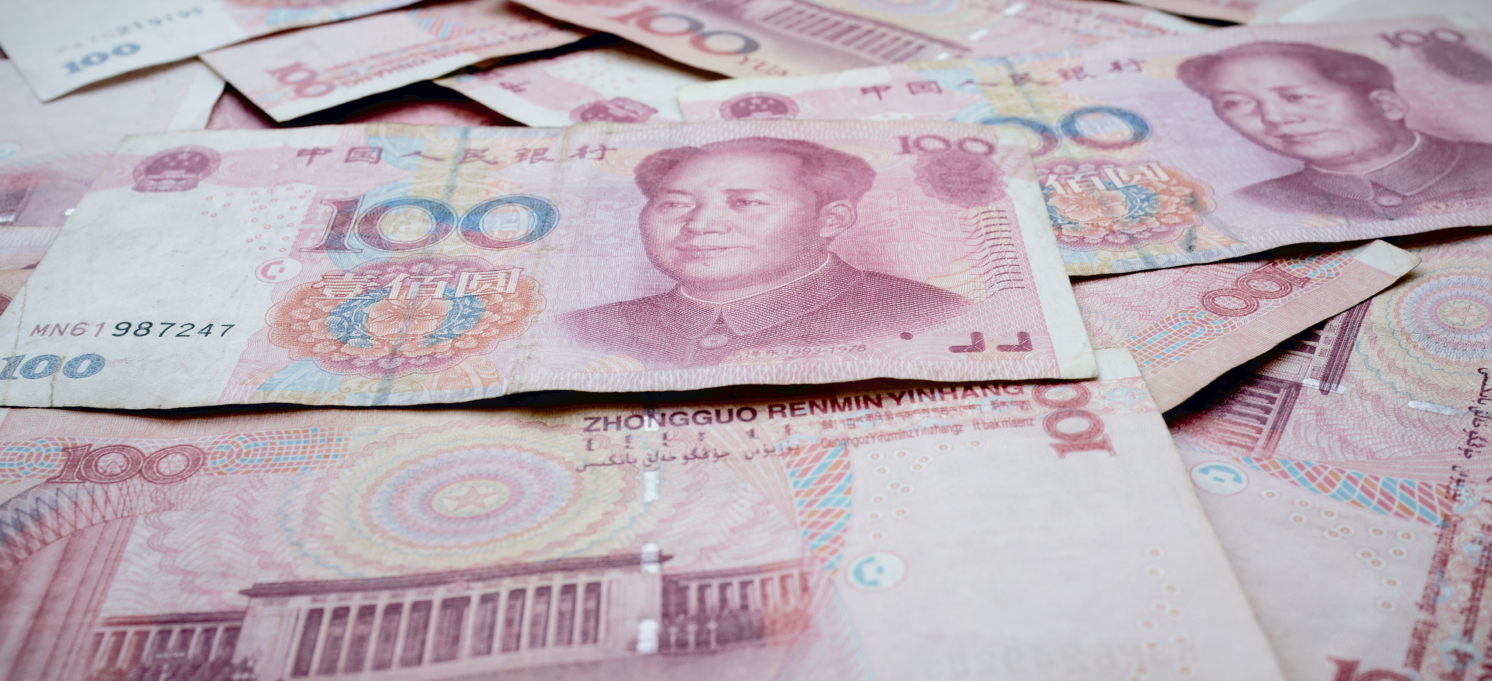
Nobody is safe from Russia’s wave of re-nationalization
Hello! This is Alexandra Prokopenko with your weekly guide to the Russian economy — brought to you by The Bell. This time we are focusing on how Russia is quietly reversing the results of the privatizations that followed the Soviet collapse. Even Kremlin loyalist oligarchs and former officials have been among those affected. President Vladimir Putin this week was forced to explain how this process was not a betrayal of his long-standing promises to let sleeping dogs lie. However, there is little doubt that, once again, the president is being disingenuous.
“It’s different, you don’t understand”
“No de-privatization is going to happen, I can assure you of that," Putin said at this week’s Vladivostok Economic Forum. But the number of re-nationalizations has already ticked into double digits. Ilya Shumanov, former director of Transparency International in Russia, has counted 17 lawsuits initiated by prosecutors seeking businesses to be seized by the state this year alone. In several cases, these suits involved assets privatized over 30 years ago.
One case earlier this month, the state seized 94.2% of methane producer Metafrax Chemicals. A court declared the 1992 privatization of the company illegal. Back in the 1990s, a series of deals saw the company acquired by future billionaire Dmitry Ryboloblev. Until this month, Metafrax belonged to Rybolovlev’s ex-business partner, Seyfeddin Rustamov.
Prosecutors offered a very significant justification for this nationalization: the original Metafrax privatization, they claimed in case materials, was done “without a government decision” and was “a violation of the economic sovereignty of the Russian Federation and its defense capability.” The wording is important. It casts doubt on the competence of regional authorities involved in arranging privatizations (in the 1990s, state property was managed (and disposed of) at regional level, not federal). This raises the legal possibility of challenging many of the deals that were done in that era.
In January, Putin flagged the return of strategic enterprises to state control as a priority for prosecutors. By the summer, there was a full list of requisitioned assets. Assets had been seized from various owners: for example, Boris Mints, a former colleague of Russia’s 1990s “privatization tsar” Anatoly Chubais who left Russia after the full-scale invasion of Ukraine; ex-officials like Andrei Korovaiko and Oleg Sorokin; as well as Western companies.
Russia’s richest man, Andrei Melnichenko, was another who had assets seized. The Prosecutor General’s Office demanded the seizure of his Sibeko energy company, which Melnichenko purchased from former minister Mikhail Abyzov in 2018 for 31.8 billion rubles (about $500 million at the time). Within a year, Abyzov was jailed on corruption charges. Now, the Prosecutor General’s Office believes that the Sibeko deal was corrupt.
In Russia, pretty much any major sector can be regarded as “strategic.” But prosecutors are especially interested in enterprises that can generate a reliable cash flow and have export potential: energy, fertilizers, transport and logistics. “Recently we have seen increasing state interest in port infrastructure,” the head of the Russian Union of Industrialists and Entrepreneurs Alexander Shokhin told RBC earlier this month. “The Prosecutor General’s Office is putting a lot of work into the area, and some private logistics assets are being returned to the treasury over some mistakes during the 1990s privatization.” Since the start of this year, ports in Perm, Kaliningrad and Murmansk have been nationalized, along with 92.4% of the shares in the Far Eastern Shipping Company.
Can you protect yourself?
“The message from the state is clear: ‘you own nothing’,” one Russian billionaire told The Bell. The state, he said, is behaving “extremely unpredictably, and it’s no longer very clear which of your actions might attract attention and lead to your assets being confiscated.” Everyone is feeling under pressure,” said another executive. “You need to develop the right relationships with important people… and be seen as doing the right thing.”
Another major businessman, however, does not think “de-privatization” will become a significant new process. “I don’t completely understand why the Prosecutor General’s Office is suddenly acting like this,” he said. “But at least some of the renationalized assets were either abandoned or dying. It’s not easy to discern who benefits.”
He gave as an example the January transfer of shares in the Far East Shipping Company to the state. This company was part of the FESCO transport group, owned by Ziyavudin Magomedov, a billionaire once close to ex-president Dmitry Medvedev. A month before the transfer, Magomedov was sentenced to 19 years in jail for running an organized criminal group and fraud. His older brother was jailed for 18 years.
One of The Bell’s sources believes assets owned by foreigners or tycoons who have left the country since the invasion of Ukraine are particularly at risk. But owners who do not show sufficient support for Russia’s war in Ukraine could also be targets for the state, said another businessman. According to him, the regional authorities regularly report to the Kremlin about what companies are doing for the war effort. “You can try not to give the governor the delivery of body armor he wanted, but the next day they’ll be on the phone asking questions,” he said.
Billionaire Melnichenko, according to one businessman who spoke to The Bell, could be in the firing line because of the words of anti-war tycoon Oleg Tinkov, who said in a recent interview that Melnichenko actually “hates Putin.” Melnichenko has denied the claim.
Western sanctions were, for a time, seen as a safeguard from state seizures: businessmen targeted by Western might even get compensation for any losses from the Kremlin. “That’s very honorable,” said Shokhin. “But now almost everyone is under sanctions. So, to save your business, it’s no longer enough to simply shut up and carry on as if there is no war. Instead you need to loudly and articulately state your support for the war in Ukraine.”
However, this is not all about revenge or rallying support. There also appear to be pragmatic reasons. The Kremlin is taking control over export flows, especially for raw materials, said the businessman who believes “de-privatization” will not spread to the whole economy. “Hence the sudden interest in ports and logistics,” he said. Bloomberg reported last month the state was considering a proposal from billionaire Dmitry Mazepin to create a single fertilizer exporter. “They are thinking about something similar for metals and grain,” the businessman told The Bell.
Why is this happening?
Putin has always accepted that the 1990s privatization in Russia was unfair — but, at the same time, guaranteed nothing would be done to revise it. This has been a pillar of his relationship with business. For example, Putin said in 2011 that: “This type of [re-nationalization] could lead to worse consequences than the original dishonest privatization; it could disrupt the work of large enterprises.”
But the invasion of Ukraine has exposed cracks in this informal agreement. As businessmen tried to rebuild following the shock of the war, they began suggesting that they had built their fortunes without help from Putin or the Kremlin. "I am a self-made businessman. In the West there is still the opinion that all decisions in Russia, a country with 146 million people, are made by Putin and his inner circle, and that no successful business is possible without corruption and without privileged relationships with political power. That's not true,” Melnichenko, Russia’s richest man, said in another recent interview.
Why the world should care
Recent renationalizations suggest that nobody is safe. Old safeguards, like Western sanctions or friends in high places, no longer work. Foreign and Russian owners alike need to find escape routes. With revenues falling, the Kremlin is on the hunt for resources to ensure the continued loyalty of the military, intelligence agencies and influential regional leaders. The wealth and status of the “new Russian elite” will be determined by its decisions.
Indian money gets stuck in Russia
Almost $600 million of dividend income from Indian oil companies is trapped in Russia due to the Russian government’s restrictions on the withdrawal of dividends by foreigners. Four leading Indian companies — Indian Oil Corporation, Bharat Petroleum Corporation, Oil India and ONGC Videsh — have been unable to repatriate funds.
Similarly, Russian money is trapped in India. Some estimate this at about $10 billion, but it’s hard to get a concrete figure. This is because of a huge trade imbalance. In July, Reuters reported that Indian oil refineries had even started paying for Russian oil in Chinese yuan.
Key figures
Inflation in Russia rose to 0.13% in the week from Sept. 5 to Sept. 11.
The Central Bank increased its key interest rate by 100 basis points to 13% on Friday, hiking the cost of borrowing for the third time in two months. At the same time, the Bank also raised its inflation forecast for 2023 from 5-6.5% to 6-7%, and upped its lending growth forecasts to 14-18% for 2023 (it was 13-17% in the previous forecast). It also predicted that the average key interest rate in 2023 would be between 9.6% and 9.7%.
The Economic Development Ministry updated Tuesday its macro forecast for the next three years. According to its base case scenario:
- The average dollar exchange rate in 2022 will be 85.2 rubles, rising to 92.3 by 2026.
- Inflation will outstrip the Central Bank’s target and reach 7.5% this year and 4.5% at the end of 2024. It will return to 4% by 2025. The Ministry appears to be taking into account a tightened monetary policy.
- The average price for a barrel of Brent crude will be $83.5 at the end of the year and $85 in 2024. It will fall to $80.2 in 2025, and $76.2 in 2026.
- Over the next three years, the pace of economic growth is expected to slow: GDP is predicted to grow 2.3% in 2024 and 2025, then 2.2% in 2026. Even this, however, seems optimistic as labor shortages continue and the economy remains overheated.
Further reading
Deal or No Deal, the Calm on the Grain Exports Market Is Deceptive Andrey Sizov figures out who need the grain deal
Russia’s September elections mark a return to Soviet-style regional management Andrey Pertsev analyses regional elections
Stuck in the ‘90s: How Russia’s opposition can shape its political future by reconciling with its past Ksenia Lutchenko about Russian opposition and its past



